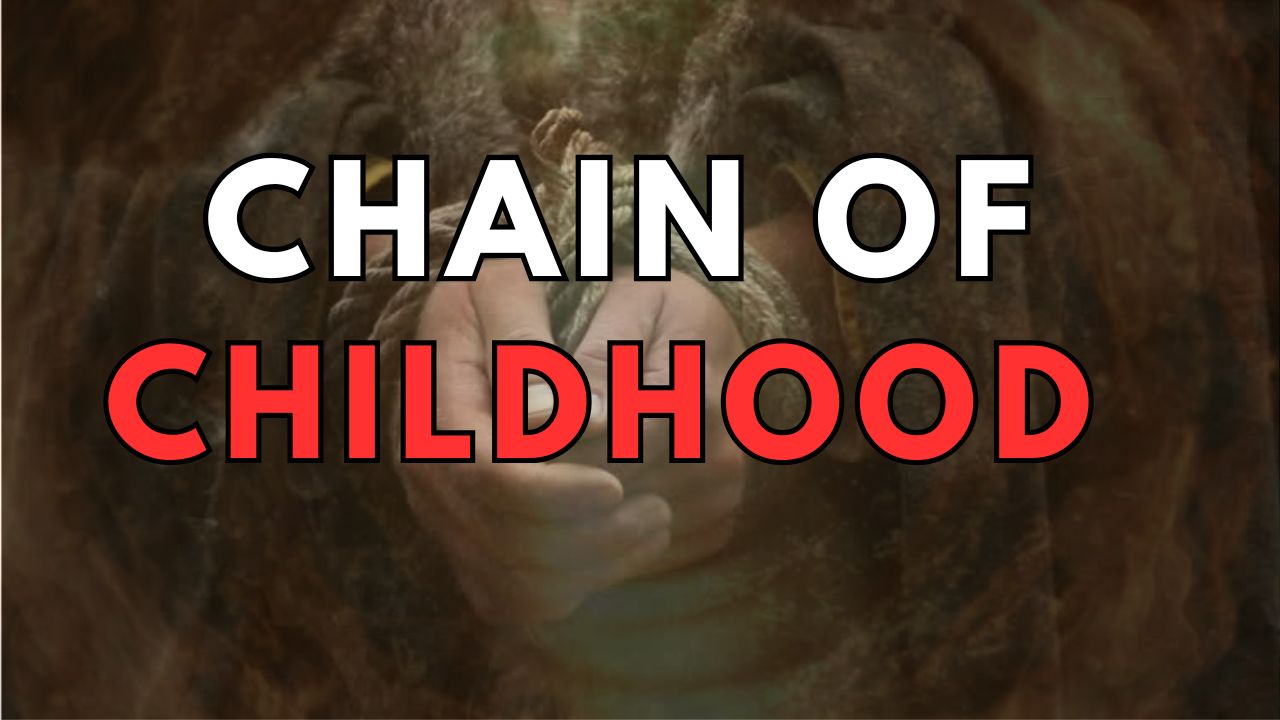
This is Making You Dumb and How to fix it?
If critical thinking can be improved, is it possible that it can decline too? In this video you will learn what causes the great decline of your critical thinking and the dire consequences for ignoring it.

If critical thinking can be improved, is it possible that it can decline too? In this video you will learn what causes the great decline of your critical thinking and the dire consequences for ignoring it.

How to stop putting your partner on a pedestal? Finding the one is not easy but you can minimise falling for someone too soon because you are desperate to find your partner. It is easy to put someone in a pedestal especially when they appear to have similar personality as you. Or so you thought. In this video, you will learn the 4 key things to avoid falling too soon and getting obsessed of your partner at an early stage of your relationship. You will learn how to navigate your biases and avoid attracting the wrong person again.

Cheating breakup is one of the toughest emotions you can go through in this lifetime. You are overwhelmed and you struggle to focus. The feeling of betrayal and the loss are debilitating. So in this video, you will learn how to overcome cheating breakup and what you must not do whilst going through the pain of your breakup. Relationship breakups, especially because of cheating, are hard and you question your entire relationship. So watch to the end so you will learn the key to fully moving on and how to trust again after cheating breakup which is backed by neuroscience! Enjoy the video and let me know what video you want me to cover next?

Join Our Waitlist – Break Free From Your Prison Mind
Listen in Spotify
Keywords: Bonnie Blue, Sex work, Adult content creator, Moral Conundrum, Morality, Ethics, Human desire, Sex positivity, Critical thinking, red district, Nuanced discussion, provocative topic, Social commentary, Cultural analysis, Philosophy, David Hume, Emotions, Empathy, how emotions are made

This video investigates the hidden, long-term harms of COVID-19 lockdowns and social isolation—what I call “The Silent Killer.” Using global case studies (Bangladesh, Japan, South Korea, the UK), personal testimony and scientific research, we trace how enforced isolation, economic shock and uncertainty produced a mental-health emergency: increased depression, anxiety, substance abuse, domestic harm and rising suicide rates. We explore neuroscience (how the brain constructs emotion), biological impacts of chronic stress (telomere shortening, immune dysregulation), links between Long COVID and suicidal risk, and why men have seen rising suicide rates after the pandemic. Featuring real life stories, expert viewpoints (Dr. Daniel Amen, the Great Barrington Declaration, WHO findings) and UK domestic-harm reports, the video argues that social isolation can be deadlier than the virus itself when you account for downstream psychosocial and biological damage. It also offers practical, research-backed ways to rebuild social safety: disconnect to reconnect, active listening, vulnerability, and small behavioural changes that rebuild trust and belonging in a fragmented society. Resources & help If you or someone is in crisis, contact local emergency services or your national mental-health helpline immediately. You can find a list of suicide crisis lines and website for countries around the world here.
Join Our Waitlist – Break Free From Your Prison Mind
Statement 1: Inflammation/Illness and Mental Health Conditions
Research has consistently shown that inflammation and illness can have a profound impact on mental health. Here are some key findings:
Statement 2: External Stress, Cortisol, Inflammation, and Mental Health Conditions
The relationship between external stress, cortisol, inflammation, and mental health conditions is well-documented:
References:
Dowlati, Y., Herrmann, N., Swardfager, W., Liu, H., Sham, L., Reim, E. C., & Lanctôt, K. L. (2010). A meta-analysis of cytokines in depression. Biological Psychiatry, 67(5), 446-457.
Kirschbaum, C., Pirke, K. M., & Hellhammer, D. H. (1999). The ‘Trier Social Stress Test’–a tool for the measurement of chronic stress. Neuropsychobiology, 39(1-2), 76-81.
Kendler, K. S., Karkowski-Shuman, L., & Prescott, C. A. (2003). Stressful life events and genetic liability to major depression: Genetic control of exposure? American Journal of Psychiatry, 160(4), 738-743.
Li, Y., Zhang, Y., & Liu, Y. (2018). Inflammation in depression: A review of the evidence. Journal of Clinical Psychopharmacology, 38(3), 268-275.
Liu, Y., Zhang, Y., & Li, Y. (2019). Inflammation and mental health: A systematic review. Journal of Affective Disorders, 249, 858-866.
McEwen, B. S. (2007). Physiology and neurobiology of stress and adaptation: Central role of the brain. Physiological Reviews, 87(3), 733-745.
Raison, C. L., Rye, D. B., Woolwine, B. J., Vogt, G. J., Bautista, B. M., Spivey, J. R., & Miller, A. H. (2017). Chronic interferon-alpha administration disrupts sleep in healthy humans. Sleep, 40(2), zsx015.


Have you ever stopped to think about how your childhood experiences are like the invisible strings pulling at your adult self? It’s a wild thought, isn’t it? Those seemingly innocent moments from our formative years can morph into the very foundation of our world view, influencing how we seek approval and navigate relationships. It’s not just about the big traumas; sometimes, it’s the little things that leave the deepest scars. So, grab a cuppa, and let’s dive into the murky waters of our past to uncover how it shapes our present.
From the moment we take our first steps, we’re bombarded with expectations. “Be good, be smart, be perfect!” It’s like a never-ending performance where the audience is our parents, teachers, and peers. The pressure to meet these expectations can be suffocating, leading us to believe that our worth is tied to our achievements. If we stumble, we fear we’ll be cast aside, left in the shadows of disappointment. This fear can morph into a lifelong quest for approval, where we constantly seek validation from others, often at the expense of our own happiness.
As we grow, this need for approval can become an addiction. We start to measure our self-worth against the applause of others, losing sight of our own desires and values. It’s a slippery slope, my friends. We might find ourselves saying yes when we mean no, or bending over backwards to please others, all in the name of acceptance. But here’s the kicker: the more we chase that approval, the more elusive it becomes. It’s like trying to catch smoke with your bare hands—frustrating and ultimately futile.
Let’s take a moment to unpack how our childhood experiences ripple through our lives. Maybe you were the kid who always had to be the best in class, or perhaps you were the one who felt invisible in a crowded room. These experiences shape our beliefs about ourselves and the world around us. If you were constantly praised for your achievements, you might grow up thinking that love is conditional—only given when you perform. On the flip side, if you felt overlooked, you might develop a deep-seated fear of rejection, leading you to overcompensate in your adult relationships.
Now, let’s spice things up a bit with some intriguing tools that can help us dig deeper into our psyche: past life regression and self-hypnosis. These techniques can offer profound insights into how our past—both this life and potentially others—shapes our current behaviours and beliefs.
Past Life Regression is a fascinating practice that allows individuals to explore memories from previous lives. It’s believed that unresolved issues or patterns from past incarnations can carry over into our present lives, influencing our fears, relationships, and even our quest for approval. By tapping into these memories, we can gain clarity on why we react the way we do and begin to heal those lingering wounds. If you want to learn more you can read it here.
Self-Hypnosis, on the other hand, is a powerful tool for reprogramming our subconscious mind. Through guided relaxation and focused concentration, we can access deeper layers of our consciousness, allowing us to confront and transform limiting beliefs. This practice can help us release the need for external validation and foster a stronger sense of self-worth. Plus, it’s a fantastic way to cultivate self-compassion and embrace our authentic selves. If you are curious about Self-Hypnosis, you can book my free 1-to-1 session here.
So, how do we break free from these childhood chains? It starts with awareness. Acknowledge the patterns that stem from your early experiences. Reflect on how they influence your current behaviour and relationships. Here are a few strategies to help you reclaim your narrative:
As we navigate the complexities of adulthood, it’s essential to remember that our past doesn’t have to dictate our future. By understanding the impact of our childhood experiences, we can begin to dismantle the approval-seeking behaviours that no longer serve us. It’s a journey, and it won’t always be easy, but it’s one worth taking.
So, let’s embrace our imperfections and celebrate the unique tapestry of our experiences. Remember, you are not defined by your past; you are shaped by how you choose to move forward. Let’s step into our authenticity and create a life that reflects our true selves, free from the shadows of childhood expectations.
Incorporating practices like past life regression and self-hypnosis can be transformative, offering new perspectives and healing opportunities. They remind us that we have the power to rewrite our narratives and break free from the chains of approval-seeking behaviour.
Until next time, be kind to yourself and keep shining your light! 🌟 Embrace the journey of self-discovery, and remember that every step you take towards understanding yourself is a step towards a more fulfilling and authentic life. You’ve got this! 💪💗
Yours truly,
Mae
PS: Let’s connect on Nostr – Censorship Resistant Social Media. Get paid for simply posting even without followers yet (Value for Value)!
